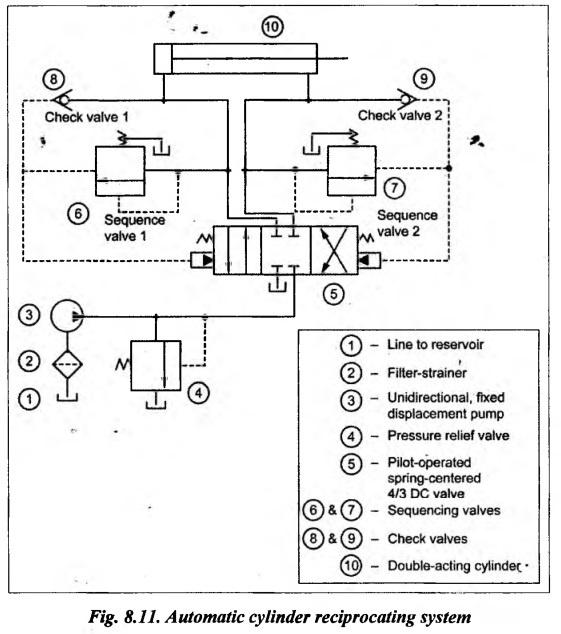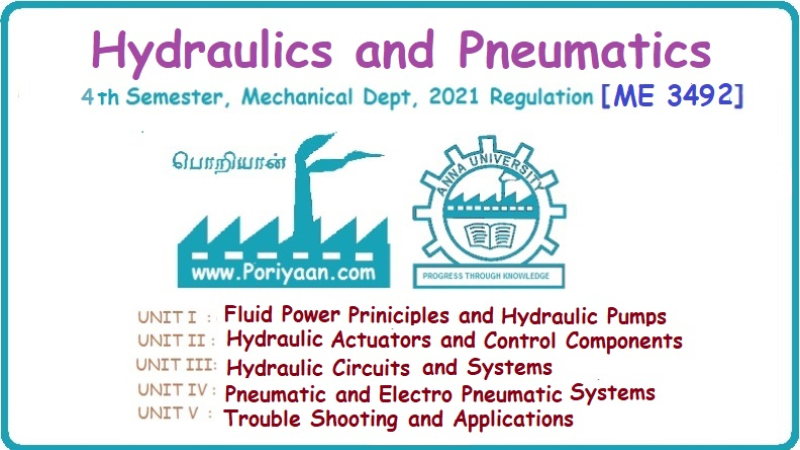Hydraulics and Pneumatics: Unit III: Hydraulic Circuits and Systems
Automatic cylinder reciprocating system
Hydraulic Circuits and Systems - Hydraulics and Pneumatics
The sequence valves can also be used to produce continuous reciprocation of a hydraulic cylinder.
AUTOMATIC CYLINDER RECIPROCATING SYSTEM (CONTINUOUS RECIPROCATION CIRCUIT USING SEQUENCE VALVES) The sequence valves can also be used to produce continuous reciprocation of a hydraulic cylinder. Fig.8.11 illustrates a circuit that produces automatic reciprocation of the hydraulic cylinder. This can be achieved by using two sequence valves and a pilot pressure operated spring-centered 4/3 DC valve. Retraction: When the 4/3 DC valve is shifted to the feft envelope flow path configuration, oil flows from the pump to the rod end of the cylinder. This pump flow retracts the cylinder. The check valve 1 prevents shifting of the 4/3 DC valve until the full retraction stroke completes. As the piston reaches its end of stroke, the pressure builds up in the sequence valve 1 and it opens. This allows the pilot pressure signal to shift the DC valve to the right mode. Extension: When the pilot signal shifts the 4/3 DC valve to the right mode, the oil flows to the blind end of the cylinder. This pump flow extends the cylinder. The check valve 2 prevents shifting of the DC valve until the full extension stroke completes. As the piston reaches its end of stroke, the pressure builds up in the sequence valve 2 and it opens. This allows the pilot pressure signal to shift the DC valve to the left mode again. Thus the sequence repeats and the cylinder reciprocates continuously.1. Functional and Operational Requirements
2. Circuit

3. Operation
Hydraulics and Pneumatics: Unit III: Hydraulic Circuits and Systems : Tag: : Hydraulic Circuits and Systems - Hydraulics and Pneumatics - Automatic cylinder reciprocating system
Related Topics
Related Subjects
Hydraulics and Pneumatics
ME3492 4th semester Mechanical Dept | 2021 Regulation | 4th Semester Mechanical Dept 2021 Regulation
